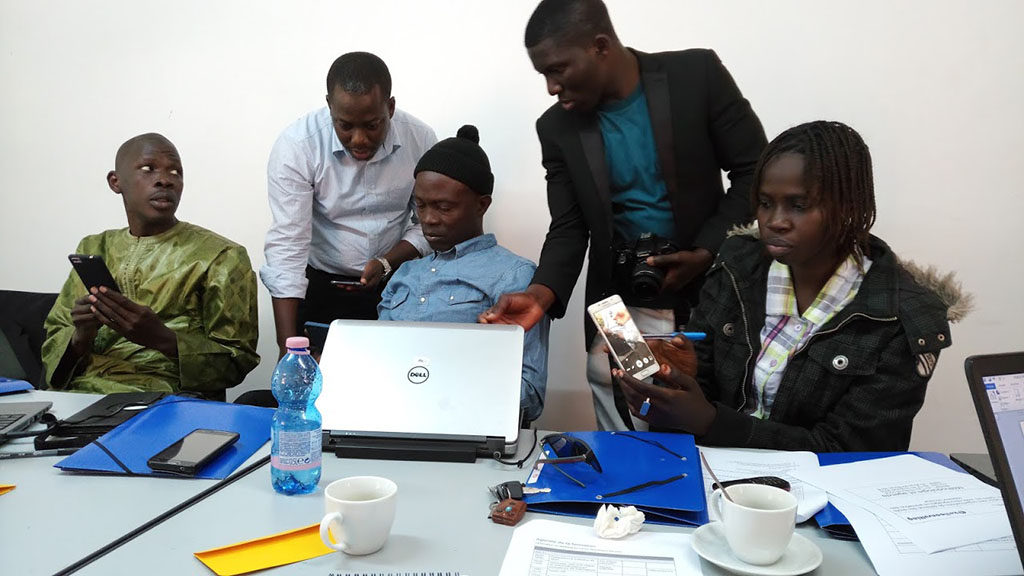
WHAT DOES PIWA DO?
These activities targeting journalists are aimed at improving the latter’s familiarity with, or better still, mastery of journalistic genres that are not very popular in the context of the news companies in which they are employed: in-depth reports, magazines. These workshops are also aimed at helping journalists of traditional media to appropriate several or multimedia.
Destined for civil society organisations- or specific segments therein, like high school students -, as well as the pooling of their tools (collaborative blogs) and synergies in their cooperation actions (campaigns, live tweets).
PIWA hopes to ensure that the capacity-building offered to its partners is sustained over a certain period of time. After organising workshops, PIWA systematically sets up follow-up mechanisms, usually based on productions by workshop participants over a certain period of time (from a few weeks to a few months), permitting them to practice what they have learnt from the workshop.
PIWA supports cooperation between less advanced media (community radios for example) and more advanced media (mainstream for example); grouping of local radios around more experienced local radios; and between journalists working in different contexts (West African, Maghreb, European).
PIWA organises internships for CSOs in media institutions aimed at strengthening their communication capacities (Senegal, Mali).
PIWA supported the strengthening (Radio Oxy-Jeunes), or creation of “School Community Radios” (URPCI).
PIWA hopes to create small skills clusters within important associations and networks (for example, the training of trainers in community management; training of mentors).
PIWA offers capacity-building to cohorts of journalists through close monitoring over time via mentoring.
Mentors offer support to groups of journalists over several months. The mentors could be drawn from “desk reporters” working either in the newsrooms where the participating journalists work, or from experienced professional journalists external to the newsroom (teachers, retired editors-in-chief).
PIWA is now working towards establishing partnerships with dynamic and innovative schools of journalism. It also trains mentors, offers training of trainers sessions in “Journalism sensitive to…(gender, conflicts, the environment).
These training sessions are general facilitated by local resource persons: scholars, researchers, as well as activists.
DOCUMENTS AND PEDAGOGIC RESOURCES
PIWA produces:
These resources are available on the multimedia platform: www.panosmedia.org